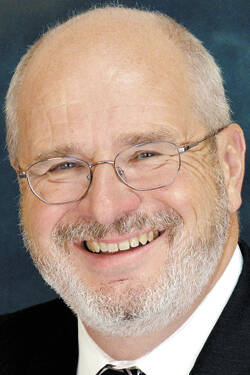No wonder former President Donald Trump has fought so hard—so desperately—to delay the three other trials he faces for criminal conduct.
The trial just concluded in New York was supposed to be the least significant of the four criminal indictments he faced. The consensus in legal and political circles was that the hush-money case was the weakest, the one Trump could most easily refute.
The thinking went that it it was the former president’s good fortune that he’d drawn it first, because he would be able to spin either a not-guilty verdict or a hung jury as a vindication.
He’s performed that political magic trick—the conjurer’s art of misdirection—so many times before. He claimed, for example, that the report by Special Counsel Robert Mueller into Russia’s efforts to influence the 2016 presidential election exonerated him, when in fact Mueller concluded that only a Justice Department rule against indicting a sitting president protected Trump from facing serious legal trouble.
There was no reason for Trump to believe this time would be any different. He’d skate once more and pirouette his way to his next self-created and self-inflicted near disaster, taking the rest of us along for the ride.
Yet, after the prosecution presented its evidence and the defense did its inexplicable best to refute it, an impartial jury rendered a verdict.
Guilty on all 34 counts.
Guilty of attempting to deceive voters during an election.
Guilty of falsifying business records.
Guilty.
Guilty.
Guilty.
Yes, guilty.
Afterward, Trump tried to perform his act once more, saying that his new status as a convicted felon was not a reflection on him but on a nation “gone to hell.” But it lacked the punch of his previous performances, as if the only conviction left in him was the one that the court had rendered.
He evoked his standard refrain about an America in an advanced state of decay, one overrun by immigrants and flailing economically.
It’s an odd picture, one disconnected from objective reality.
The U.S. economy is thriving. The stock market crosses new thresholds week after week. Unemployment rates are at their lowest in a half-century or more. Inflation is higher than one might like, but lower than in just about any other industrialized country on the planet.
Undocumented immigration numbers tell a similar story. They’re actually down from when Trump was president but remain high in part because the American economy is creating more jobs than there are people to fill them.
But that is Trump’s dark but special gift—to make so many people think down is up and night is day.
His status as a convicted felon doubtless will weld the members of his base—many of whom pride themselves on being law-and-order devotees—even more closely to him, even though the evidence is strong that he has done little but pilfer from them.
Otherwise sane, intelligent Republican leaders abet this mass delusion, including GOP governors who tout their states’ tremendous economic successes while at the same time advancing the Trumpian narrative of a nation hurtling toward disaster.
The dissonance in that message does not matter.
Nor do the facts nor truth itself.
The only thing that does matter in Trump world is that a sense of grievance, merited or unmerited, real or illusory, be constantly stoked.
Trump figured out early on that, in a nation in which so many are determined to feel sorry for themselves, constantly depicting himself as a helpless victim was a path to first prominence and then power. By making himself a martyr to his own character defects, he claimed the perpetual allegiance of the perpetually aggrieved.
The question that remains is whether there are enough of those folks to decide an election and perhaps the nation’s future.
There was a time, not all that long ago, when the notion that a convicted felon would have a credible chance of being elected president would have been considered absurd.
But times have changed—and so, perhaps, has the country.
A man who has been convicted by one court of 34 different violations of the law and found by another to have committed rape now is the head of what once was Abraham Lincoln’s party.
And what once was an absurdity now seems to move steadily toward tragedy.
John Krull is director of Franklin College’s Pulliam School of Journalism and publisher of TheStatehouseFile.com, a news website powered by Franklin College journalism students. The views expressed are those of the author only and should not be attributed to Franklin College. Send comments to [email protected].





